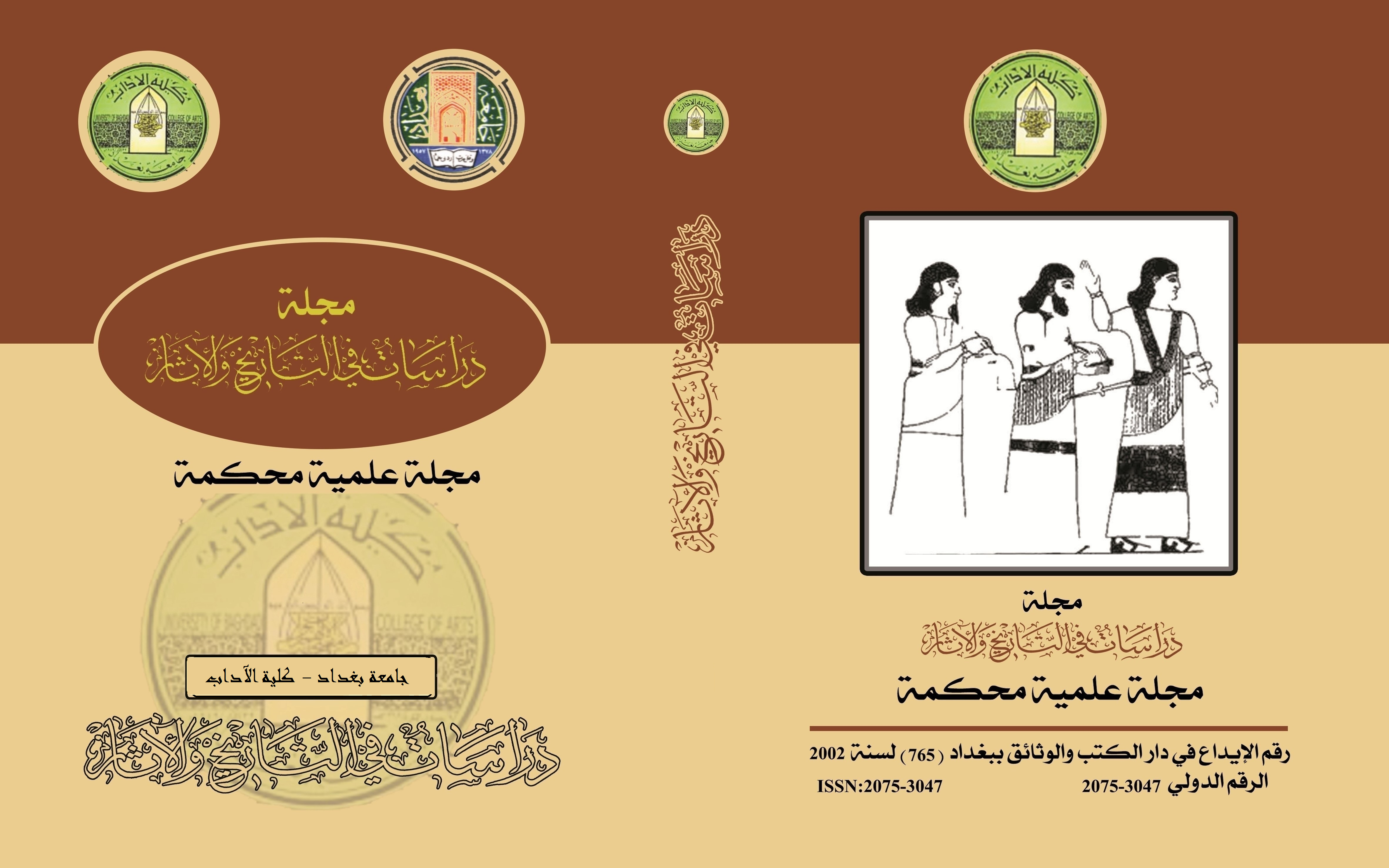الانشطة الاتصالية للعلاقات العامة في منظمات حقوق الانسان في العراق
الكلمات المفتاحية:
العلاقات العامة، حقوق الانسان، منظمات حقوق الانسان في العراقالملخص
اصبحت العلاقات العامة من الوظائف المهمة في المنظمة فهي تؤدي دوراً مهماً في تسهيل الاتصال بين المنظمة وجماهيرها لكسب ثقتها لأعمالها، وبدأ استخدام هذه الوظيفة في محيط الأعمال التجارية والصناعية ثم استخدمت بعد ذلك في المنظمات الأخرى الاجتماعية والدينية وغيرها... عندما أدركت هذه المنظمات أنها لا يمكن أن تنجح وتصل الى اهدافها من دون الجمهور.مقابل ذلك أدى اتساع ميادين منظمات المجتمع المدني بنحو عام ومنظمات حقوق الانسان بنحو خاص في العصر الحديث الى ظهور الحاجة الى أهمية العلاقات العامة في توطيد العلاقة بين هذه المنظمات والجماهير المرتبطة بها، ومع ازدياد نشاط هذه المنظمات زادت تبعاً لذلك الجماهير التي تتعامل معها واصبح يقع على عاتق العلاقات العامة مهام جسيمة وعبء ضخم يتمثل في ايجاد نوع من التكيف بين هذه المنظمات وأعلامها بسياستها وخدمتها وأوجه نشاطها، سيما أن هذه المنظمات تقدم خدمتها بالمجان أو تعتمد في ميزانيتها على جهات أخرى، فكثير من منظمات حقوق الانسان التي تنشأ على يد عدد قليل من الافراد ذوي المثل العليا لمواجهة حاجات المجتمع الحديث، وتعتمد على تأييد الجمهور في تحقيق متطلباتها المطلوبة.
المراجع
- ابراهيم أمام، العلاقات العامة والمجتمع، مكتبة الانجلو المصرية، القاهرة، 1968.
- ابراهيم أمام، فن العلاقات العامة والاعلام،ط1، مكتبة الانجلو المصرية، القاهرة، 1968.
- أحمد حافظ نجم، حقوق الا نسان بين القرآن والاعلان، القاهرة: دار الفكر العربي،
ب. ت.
- الأمم المتحدة ، التدريب في مجال حقوق الانسان، نيويورك وجنيف، مكتب المفوض السامي لحقوق الأنسان، العدد6، ،2000.
- أمير موسى، حقوق الانسان ، مدخل الى وعي حقوقي، بيروت، مركز دراسات الوحدة العربية، سلسلة الثقافة القومية،24، 1994.
- برهان غليون وآخرون، حقوق الانسان العربي، مركز دراسات الوحدة العربية ، سلسلة كتب المستقبل العربي17، بيروت1999.
- جامع العبودي، بين حقوق الانسان والدستور، صدى الانسان، بغدادـ، منظمة حقوق الانسان بالعراق، العدد 46، 2003.
- جعفر صادق مهدي، ضمانات حقوق الانسان، م.س.ذ.
- الجمعية العراقية للمحامين الشباب ، برنامج يوم في ضيافة حقوق الانسان، بغداد:، الدورة الثانية عشر، لمنظمات المجتمع المدني.
- جميل أحمد خضير، العلاقات العامة، ط1، دار اليسر للنشر والتوزيع، عمان، 1998.
- جيهان رئيسي، الأسس العلمية لنظريات والاعلام، القاهرة، مؤسسة دار التعاون للطباعة والنشر، 1975.
- حميد جاعد، علم اجتماع الاعلام، دار الشروق للنشر والتوزيع ، عمان، 2002.
- حميد حربي حسن، العلاقات العامة ، المفاهيم التطبيقات ، دار الحكمة للطباعة والنشر، الموصل، 1991.
- حميد منير حجاب، سحر محمد وهبي، المداخل الاساسية للعلاقات العامة
( المدخل الاتصالي)، دار الفجر، القاهرة، 1999.
- زياد محمد، مبادئ في العلاقات العامة، عمان، دار صنعاء للنشر ، 2001.
- سمير محمد حسين، أدارة العلاقات العامة في مصرـ دراسة ميدانية، القاهرة، مؤسسة دار العلم، 1995.
- سمير محمد حسين، العلاقات العامة، مجلة عالم الصناعة، السنة الثانية، العدد الحادي عشرـ القاهرة، 1973.
- الصادق شعبان، الحقوق السياسية للإنسان في ظل الدساتير العربية، المستقبل العربي، بيروت، مركز الدراسات الوحدة العربية، العدد 1957.
- صالح خليل أبو أصبع، العلاقات العامة والاتصال الانساني في المجتمعات ، ط3، دار آرام للدراسات، عمان، 1999.
- عامر حسن فياض، أثر تدريس حقوق الانسان في تعزيز الفكر الديمقراطي الليبرالي العراقي المعاصر، أوراق عراقية، بغداد: مركز الفجر للدراسات والبحوث العراقية، العدد1، 2005.
- عبد المنعم خميس، العلاقات الانسانية والسلوك الاجتماعي، المجلة العربية للأدارة، المجلد الثاني، العدد الثالث، تموز، 1988.
- عزت سعد البرعي، حقوق الانسان في ظل التنظيم الدولي والاقليمي، مطبعة العاصمة، القاهرة، 1985.
- علي الدين هلال وآخرون، الديمقراطية وحقوق الانسان في الوطن العربي، بيروت، مركز دراسات الوحدة العربية، سلسلة كتب المستقبل العربي،(41) ،1983.
- علي عجوة، مقدمة في العلاقات العامة، ط2، القاهرة، عالم الكتب ، 2000.
- لبنان هاتف الشامي، العلاقات العامة، المبادئ والأسس العلمية، عمان، دار اليازوري، 2002.
- محمد طلعت عيسى، العلاقات العامة كأداة للتنمية، ط4، دار المعارف بمصر، القاهرة، 1970.
- محمد طنطاوي، السلوك التنظيمي، دار الجامعات المصرية، الاسكندرية، 1974.
- محمد عبد العزيز ، حقوق الأنسان في الشريعة الاسلامية وقواعد القانون الدولي، .س.ذ.
- محمد عبد الله المتوكل، الاسلام وحقوق الانسان، المستقبل العربي، مركز دراسات الوحدة العربية، بيروت، 1997.
- محمد محمد الباوي، انيان الاجتماعي للعلاقات العامة، ط1، مكتبة الانجلو المصرية، القاهرة، 1978.
- محمود حسن اسماعيل، مبادئ علم الاتصال ونظريات التأثير، الدار الجامعية، القاهرة، 2003.
- محي عبد الله ستو، الاتصال في عصر العولمة، القاهرة، الدار الجامعية، 1999.
- منذر العنتباوي، دور النخبة المثقفة في تعزيز حقوق الانسان الديمقراطية وحقوق الانسان في الوطن العربي، م.س.ذ.
- منظمة العفو الدولية، الخطوات الأولى، دليل تعليم حقوق الأنسان، بغداد: الجمعية العراقية لحقوق الانسان، 2004 .
- وليام ل. تيودر، بيترسون، جاي جنسي، وسائل الاعلام والمجتمع الحديث، ترجمة الدكتور ابراهيم أمام، دار المعرفة، القاهرة، 1975.
التنزيلات
منشور
إصدار
القسم
الرخصة

هذا العمل مرخص بموجب Creative Commons Attribution 4.0 International License.
:حقوق الطبع والنشر والترخيص
بالنسبة لجميع البحوث المنشورة في مجلة دراسات في التاريخ والآثار، يحتفظ الباحثون بحقوق النشر. يتم ترخيص البحوث بموجب ترخيص Creative Commons CC BY 4.0 المفتوح ، مما يعني أنه يجوز لأي شخص تنزيل البحث وقراءته مجانًا. بالإضافة إلى ذلك ، يجوز إعادة استخدام البحث واقتباسه شريطة أن يتم الاستشهاد المصدر المنشور الأصلي. تتيح هذه الشروط الاستخدام الأقصى لعمل الباحث وعرضه.
:إعادة إنتاج البحوث المنشورة من الناشرين الآخرين
من الضروري للغاية أن يحصل الباحثون على إذن لإعادة إنتاج أي بحث منشورة (أشكال أو مخططات أو جداول أو أي مقتطفات من نص) لا يدخل في نطاق الملكية العامة أو لا يملكون حقوق نشرها. يجب أن يطلب الباحثون إذنًا من مؤلف حقوق النشر (عادة ما يكون الناشر).
يطلب الإذن في الحالات التالية:
بحوثك الخاصة المنشورة من قِبل ناشرين آخرين ولم تحتفظ بحقوق النشر الخاصة بها.
مقتطفات كبيرة من بحوث أي شخص أو سلسلة من البحوث المنشورة.
استخدم الجداول والرسوم البيانية والمخططات والمخططات والأعمال الفنية إذا لم يتم التعديل عليها.
الصور الفوتوغرافية التي لا تملك حقوق لنشرها.
لا يطلب الإذن في الحالات التالية:
إعادة بناء الجدول الخاص بك مع البيانات المنشورة بالفعل في مكان آخر. يرجى ملاحظة أنه في هذه الحالة يجب عليك ذكر مصدر البيانات في شكل "بيانات من ..." أو "مقتبس من ...".
تعتبر عروض الأسعار القصيرة معقولة الاستخدام العادل ، وبالتالي لا تتطلب إذنًا.
الرسوم البيانية ، الرسوم البيانية ، المخططات ، الأعمال الفنية التي أعاد الباحث رسمها بالكامل والتي تم تغييرها بشكل ملحوظ إلى درجة لا تتطلب الاعتراف.
الحصول على إذن
لتجنب التأخير غير الضروري في عملية النشر ، يجب أن تبدأ في الحصول على أذونات في أقرب وقت ممكن. لا يمكن لمجلة الآداب نشر بحث مقتبس من منشورات أخرى دون إذن.
قد يمنحك مالك حقوق الطبع والنشر تعليمات بشأن شكل الإقرار الواجب اتباعه لتوثيق عمله ؛ بخلاف ذلك ، اتبع النمط: "مستنسخ بإذن من [المؤلف] ، [كتاب / المجلة] ؛ نشره [الناشر] ، [السنة]." في نهاية شرح الجدول ، الشكل أو المخطط.



















